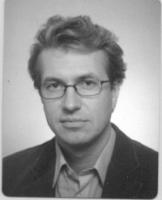Räikkä, Juha | Finland

Juha Räikkä (born 1965) graduated in Philosophy from the University of Turku in 1988 and completed Licentiate’s Degree in 1989. He defended his doctoral dissertation at the University of Turku in 1992 after studying the autumn term in 1989 and the spring term in 1992 at the University of Miami under Professor Alan Goldman’s supervision. Räikkä was a post-doctoral researcher in Austin, Texas during the spring term in 1994. He has visited many times at the European University Institute in Florence (1999, 2001, 2003).
He was nominated as a docent at the University of Turku in 1994. Räikkä was ranked second in applying for the post of the professor of practical philosophy at the University of Turku. He has worked as a researcher and a lecturer for 16 years, since 1988, and as a professor at the University of Turku for six years. He has also worked as a researcher for the Academy of Finland. At the moment he is the senior assistant at the University of Turku. Räikkä has been the head of the department of philosophy for six years. His first three-year period began in 1998 and the other began in 2001. From the beginning of 2004 he has been the vice head of the department of philosophy.
Räikkä’s research interests focus on the core of practical philosophy, i.e. in ethics and political and social philosophy. In the field of social philosophy, he has specialized in issues concerning justice such as minority rights, international income distribution, alternatives of population policy and the concept of collective responsibility. In the field of ethics, he has concentrated on methodological issues but also on questions in moral psychology, particularly the nature of guilt and remorse. In the field of applied ethics he has specialized in bioethics, for instance ethics of genetechonology. His new book Philosophy of Self-Deception (in Finnish) belongs to the field of ethics, though the book deals with questions of philosophical psychology. Räikkä is an Editor of a Finnish philosophical journal Ajatus.
Juha Räikkä’s recent publications include the following titles:
2000. “Problems in Population Theory”, Journal of Social Philosophy 31, 401-413.
2000. “The Place of Religious Arguments in Civic Discussion”, Ratio Juris 13, 181-195.
2000. “The Moral Relevance of Cultural Disadvantage”, Australasian Journal of Philosophy 78, 374-390.
2000. “The Problem of the Second Best: Conceptual Issues”, Utilitas 12.
2000. “Social Criticism as a Social Practice”, Trames 4, 5-20.
2001. “Coercive Population Policies, Procreative Freedom, and Morality”, Philosophy and Geography 4, 67-77.
2002. “Repugnant Conclusion and the Welfare of Actual People”, Theoria 68, 162-169.
2003. “The Argument from Truth as a Basis for Legislation Concerning the Freedom of Speech”, Trames 7, 249-256.
2004. “Knowledge Promotion as a Criterion for Evaluating Social Institutions”, Sats – Nordic Journal of Philosophy 5 (No. 2).
2004. “The Self-Fulfilling Prophecies and Global Inequality”, Philosophy & Geography 7, 195-202.
2005. “Global Justice and the Logic of the Burden of Proof”, Metaphilosophy 36, 228-239.
Project at IAS-STS: Gene Technology and World Poverty
While the conventional uses of biotechnology are widely accepted in food production, the use of the genetically modified organisms (GMOs) have become the target of a very intensive ethical debate. One theme of this discussion has been the use of GMOs in developing countries in order to produce more food.
According to common wisdom, the world population continues to grow and will reach nearly 10 billion by the year 2050. The shortage of food increases the need to enhance agricultural production. Those who support GMO food production point out that genetic engineering has the potential to increase production and productivity in agriculture. The idea is that there are not any real alternatives. Cultivable land is already being utilised effectively in many of the overpopulated regions. When marginal sites are turned to agricultural land, drought or erosion rapidly degrade the soil until cultivation is no longer possible. Crop cultivation is also threatened by urbanisation and other building activities, chemical pollution, supposed climate warming, desertification and diminished water resources that are consequences of cultivation practices and overgrazing.
